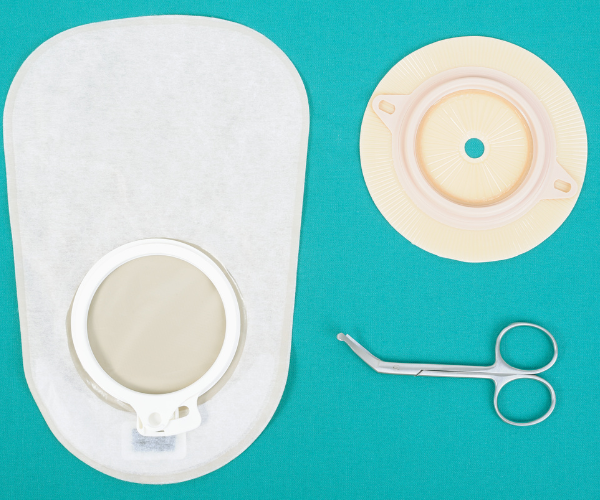(18-25yo)
College Faculty
For the most part all faculty want to help you succeed. They will listen if you explain yourself clearly and succinctly. Explain that there are times when you must leave the classroom because of a medical emergency. You do not have to go into the finer details, but make sure they are aware and understand the gravity of the situation.
- Check in with health services to let them know of your needs.
- Talk to a counselor if a faculty is being uncooperative. They can assist you with getting your needs met in a positive manner.
- Check if your college or university has an office of disability services or similar support – request accommodations as soon as possible.
Pack Supplies
A bookbag/backpack/large makeup bag are useful for holding needed supplies such as: Ostomy provisions, Stool slowing food (marshmallows work great), protein bars (in case your friends eat somewhere you cannot).
Keep a set of pouch change supplies in a desk drawer/locker/cubby If you spend a lot of time in a certain academic building. Ask an administrator/counselor/school nurse or others if there is a place to keep extra supplies.
Make sure you always have enough backup supplies wherever you are (i.e. outings, work, dorm, etc.) Don’t depend on breaks or visits back home to replenish your supplies.
Be proactive about changing your appliance. Make sure that you are not waiting for it to fall off before you change it, this will help you to avoid many hardships and mishaps.
Work/Employment
Human resources can help, but their primary purpose is to shield the company from liability.
Don’t be shy about asking for accommodations (flexible hours, private bathroom access, etc.)
Keep an alternative work outfit with you.
You don’t have to disclose your medical situation to anyone unless you choose to!
Discrimination based on disability is illegal; bring in assistance if necessary.
Talk with your Human Resource (HR) representative about short-term and long-term disability policy.
Make sure you have access to a bathroom when necessary.
Communicate openly with your HR representative/supervisor about upcoming appointments/procedures.
Moving Away From Home
Get a recommendation from your current pediatric surgeon/WOC Nurse.
Ask which adult providers they normally refer to.
Get names of providers and research them yourself – check their reviews.
If your insurance allows for it, try and book visits with your top 2 or 3 adult providers to see who is a good fit for meeting your needs.
When moving away for college, work, or personal reasons:
Still ask your current trusted provider/surgeon/WOC Nurse for a referral.
They may have trained or trained with other providers in locations you are looking to move to.
Consider insurance limitations:
You may not be able to see a referred provider based on your new or changed insurance coverage.
Make sure that you begin researching adult providers at least 6 months before having to leave current pediatric care.
If you are going to be assigned a provider through your network, ask current pediatric providers for medical records to include:
- All operative reports
- Progress notes
- History and physicals
- Wound Ostomy Continence Nurse consult notes (will include more detailed notes on appliance sizing, peristomal conditions, history of trialed products)
- Medication record/history
- Other notes from hospital stays that can be provided
- NOTE: Ask If your current provider can have a “Peer to Peer” discussion with your newly assigned adult provider
Hot, Humid Weather
Many people find that hot, humid weather can make it more difficult to get their ostomy appliance to stay in place. Sweating and moisture around and underneath the appliance can break down the adhesive and lead to leakage or peeling.
Keep in mind that sweating can decrease the wear time on your ostomy appliance, so make sure to change it often.
Reinforce the edges with barrier protectors or breathable tape.
If possible, always change the appliance at least an hour or so before going out in hot weather, to help it get a good seal on your skin. Bedtime is a great time to do this if you live in an area with a hot or humid climate.
Use a personal fan or other device to keep yourself cool. Less sweating means fewer problems with appliance adhesion.
Changing Body Shape
You can grow and change very quickly! Your stoma grows with you, so don’t forget to measure it periodically to ensure a proper fit around the stoma. The contours of your abdomen also may change significantly during your life. If you begin having trouble with an appliance that has worked well in the past, be open to switching to a different product.
- Contact your WOC nurse and talk about options.
- Many manufacturers will send you samples so that you can figure out what works for you.
- Often changing to a convex wafer, one-piece system, or adding a barrier ring can increase your wear time and eliminate leakage in this case.
Hope, support, and finding community





